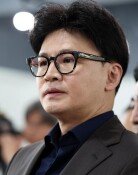Companies Losing Shareholder Lawsuits
Companies Losing Shareholder Lawsuits
Posted January. 06, 2007 06:47,
In regard to a recent a minority shareholders claim for damages filed against the management of Jeil Pharm, a court sentenced the management to compensate the minority shareholder.
Courts have been acknowledging managements liability for damages if they did not carry out their duties properly without committing a crime. Therefore, experts believe companies are likely to bear greater legal risks in the future.
Following the introduction of shareholder derivative lawsuits, revised commercial laws such as double derivative suits are expected to be introduced this year, rising concerns over the increasing burdens on corporations due to legal suits.
A minority shareholder, identified only as Heo (59), filed a 2.6 billion-won compensation lawsuit against Han Seung-soo, the chairman of Jeil Pharm, claiming that, The chairman inflicted damages to the company due to his misconduct. In response, the Seoul Central District Court recently ruled that, Han shall pay a compensation of about 2.1 billion won to the company, The Dong-A Ilbo confirmed on Friday.
Heo, who has 1.01 percent of the companys stake, filed the suit in November 2005, saying, Han caused damage to the company when he served as the chairman of Jeil Pharm in December 2003 by using his own liabilities to guarantee to the company.
In this regard, the court said that Han violated his obligations as a manager because he did not prevent risks that the parent company may have had to bear for undertaking a joint liability on guarantee when the financial situation was not sound. Therefore, Han is responsible to pay for the damages he inflicted on Jeil Pharm, the court said.
Meanwhile, Jeil Pharm said it will decide whether it will appeal against the decision after reviewing the ruling.
The significance of the ruling is that the court saw the liability of the management despite the fact that Han did not violate regulations stipulated on the commercial law and the securities and exchange law because he did not fulfill his duties as a board member. In other words, it has broadened the scope of liabilities on corporate board members.
In August 2006, the Peoples Solidarity for Participatory Democracy (PSPD) filed a lawsuit for compensation against eight board members of LG Group, including Goo Bon-moo, the chairman of LG Group, saying they gave shares to the management and relatives of the chairman at an extremely low price, and the Seoul Southern District Court ruled that, The management, including Goo, shall compensate 40 billion won to the company. LG Group has given up appealing.
In September 2006, the Seoul Southern District Court also ordered the management of Daesang Group to pay for damages in regard to two minority shareholders claims for damages filed against the board members of the company, including honorary chairman Lim Chang-wook. The court ordered the management to compensate 412 million won to the company.
In the meantime, business communities are paying close attention to upcoming rulings given that courts have been favoring minority shareholders on shareholder derivative lawsuits since last year. Moreover, they seem to be at a loss because courts have been recognizing the decisions of management as something liable for compensation even if they did not involve illegal conducts.
The minority shareholders and the management of Samsung Jeil Industries have also filed a shareholder derivative lawsuit against Samsung Everlands for issuing convertible bonds.
Moreover, minority shareholders have also filed lawsuits against Lee Ik-chie, the former chairman of Hyundai Securities and Hyun Jung-eun, the chairman of Hyundai Group, for writing an inappropriate written promise and selling the stocks of Hyundai Merchant Marine at a low price, respectively.
Following the introduction of shareholder derivative lawsuits, double derivative suits are also expected to be introduced sometime this year. This is creating a great stir in the business circles because they believe this introduction of the lawsuits will threaten the management of corporations.
If the shareholder derivative lawsuit is introduced besides existing shareholder derivative lawsuit, it can hamper the principles of independent corporate management because management will fear of the increased burdens of lawsuits, an official of the Federation of Korean Industries said.
If the shareholders of the parent companies file lawsuits against the board members of their subsidiary companies, it can rather cause damages to the shareholders of the subsidiary companies due to various reasons like plunging share prices. (The government) must be cautious before introducing the system in consideration of possible side effects in the financial market and industry, Jeon Sam-hyun, a professor at Soongsil University, said.
In advanced counties like the U.S., the government is trying to pass a bill that ease the responsibilities of management with the increasing side effects caused by an excessive increase of lawsuits against companies and the management, a legal advisor of an conglomerate said.
We are reviewing the revision of related laws including the commercial law in order to protect companies from reckless lawsuits filed against them as if hunting them, Kim Sung-ho, the Minister of Justice, said during an interview with The Dong-A Ilbo.
In this regard, Kim Young-hee, a lawyer at the Solidarity of Economic Reform, argued, There is no possibility of filing excessive lawsuits in Korea because Korea has the complicated requirements for shareholders unlike the U.S. where a shareholder can sue the company even if he or she has a single share.
wiseweb@donga.com swon@donga.com






